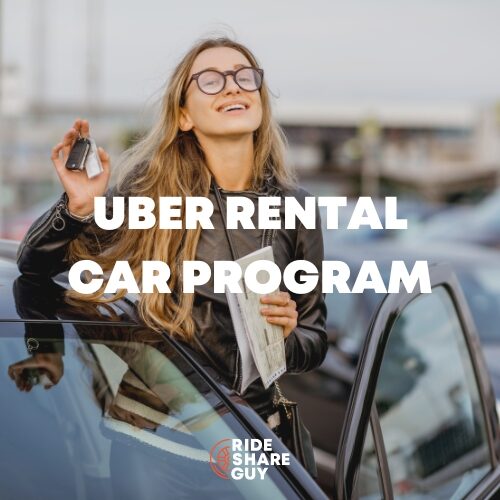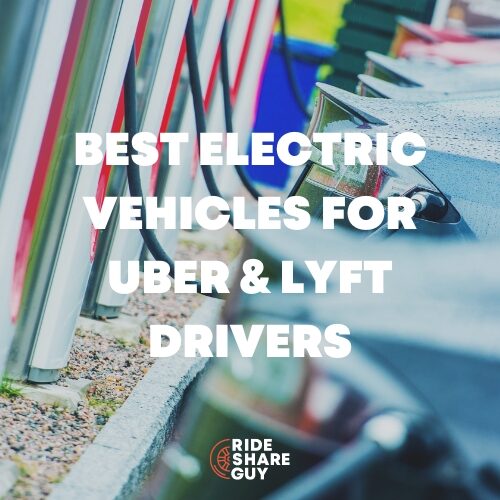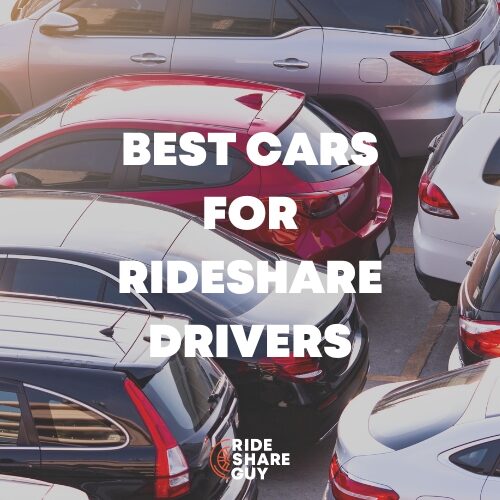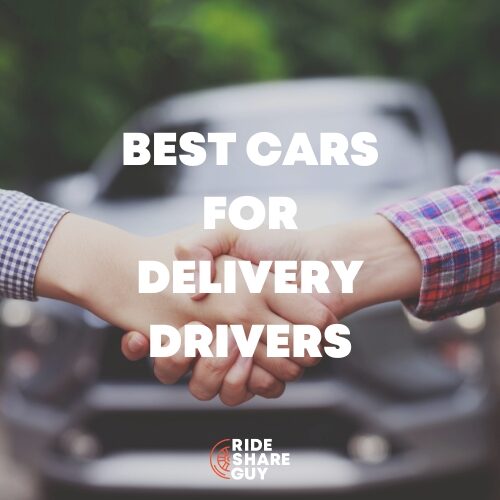Harry here. Self-driving cars are on a lot of drivers’ minds right now, and a few weeks ago we interviewed a futurist and autonomous car expert on the podcast who said self-driving cars would be here in 10 years (listen to that interview here)!
But today, RSG contributor Christian Perea presents a different take and talks about a few ways that drivers could actually benefit from the impending self-driving car revolution. How soon do you think it will be before self-driving cars start to hit the road and what do you plan on doing about it?
General Motors recently announced a $500 million dollar investment in Lyft as well as a strategic initiative to develop self-driving cars. We know Uber has been working on this for a while, but this was the first signal of Lyft’s eventual adoption of self-driving cars (special thanks to Emmanuel Ruvalcaba for announcing it a day early after one of his passengers revealed it to him).
General Motors has indicated they will have some self-driving cars around their campus in Michigan within the next two years, which only puts them 4 years behind Google.

Since I am a driver AND writer on this blog, I get to enjoy twice the usual flood of “aren’t you worried that robots will replace your profession?” whenever a story like this comes out. My standard response is “why call a self driving car when I can just use Marty McFly’s hoverboard?”
My point is this: It’s important to dream about the future, but you are going to have a tough time arriving there if you forget history. For example, don’t forget all the cool shit we were told we would have by 2016: hover boards (real ones!), a Mars colony (w/ mining operations), robots, hover cars and F-14’s that transform into human-like fighting machines.
The problem with predicting the future is that it has always been constrained by our perception of the present.
Related Article: Zack Kanter On Why Self-Driving Cars Are Coming Faster Than You Think
Will Robots Make Drivers Unemployed?
I don’t know. I’m not an economic expert. I just pretend to be when I have had a few beers. I do, however, know that all of those other “experts” want pageviews on their websites and the best way to do that is to talk about how everyone is going to be unemployed by painting an apocalyptic picture of a future where Google/Uber/Ford/SkyNet figure out how to make fully autonomous cars and drive us into massive unemployment. However, I recently thought of a different outcome.
Independently Owned Autonomous Vehicles
Wouldn’t it be nice to live in a world where I could drink beer on a Monday as I sent my vehicle to go and fetch fares for me throughout the city. I could dispatch it to an area in advance and use some sense of strategy to fetch my fares all from within the comfort of my own home. This thought sounded nice to me because as much as I love driving, I also sometimes hate it. I’m sure many of you can relate. I wouldn’t mind sitting in my underwear from my computer and sending my autonomous vehicle to go and work for me. It would probably be friendlier too.
I know it sounds a little far-fetched, because many have envisioned the onslaught of autonomous cars will suddenly be part of a system where TNCs would own a massive fleet of these automatons, where we would depend on some sort of world in which all of our transportation was controlled by a handful of large corporations. It makes sense; we think big companies can use scale and capital to purchase large quantities of a standard robo-car model and operate it at lower cost via standardized maintenance and quality that drives smaller players and humans out of business.
But perhaps a certain time ago we would have seen somebody describing the standardization of food in a similar manner. Certainly McDonald’s has not realistically replaced all or even most of our meals right? Lets face it, you like that unique hipster food.
Our TNC Overlords Hate Owning Tangible Assets
If we were to apply the same logic that we created for autonomous cars above to what we have today, it wouldn’t make much sense. At present, on-demand companies shift the costs of ownership to their partners. Who’s to say they wouldn’t shift them to us again albeit at a different scale using a different model?
Owning a fleet of cheap cars requires workers, property, supplies, and other tangible stuff. It requires people to manage all of that tangible stuff and repair it using tangible things. Then they have to buy more stuff to take care of the things and stuff they already have. All of that stuff is expensive even when its hyper-efficient. More importantly, all of that stuff takes time to put together and involves long-term commitments combined with the trial and error of finding the right efficiencies. All the while, the competitive clock ticks.
WHY Would They Use OUR Autonomous Cars?
It worked last time around. Why not in the future? The marketing and recruitment infrastructure would already be in place. Consumer spending on new (autonomous) vehicles would likely overshadow whatever a company could afford, even if it is slowing down. There would likely be a ready supply of underutilized privately-owned autonomous vehicles before any TNC could even decide on which vehicle to use or what market to launch it in. There would also be a proven method to tap into that supply.
What Would Self-Driving Cars Look Like?
It would probably be similar to owning a vending machine operation. I imagine that rates would be ridiculously low for these sort of services while running paper-thin margins with extremely high utilization.
Imagine using your autonomous car to drive you and some friends to the bar. You plan to be there for 2-3 hours so while you drink with your friends you make your robo-car available to login to a service like Lyft or Uber.
While you drink with your friends, your car is out skirting throughout the city giving rides to passengers who are paying you. You earn money while you are out with your friends and end your night by making some money. When you are ready to leave, you call your car to return and scoop you up. Nobody drives drunk and upon getting home, you send your autonomous car back out into the word to do more work. When you wake up, you have accrued an extra $150 while you slept (even robo-cars will have surge pricing baby!).
Why This Could Be Awesome
- You could scale your operation beyond yourself since the driving part is automated
- You wouldn’t have to deal with passengers directly (unless they puke in your car?)
- Autonomous cars can run longer, more efficiently, and safer than you
- They can do it all for longer than a human; this means you can have more hours on the road
- You would own a fleet of f&*king autonomous robots!
What Would Suck
- Rates would likely be abysmal
- You would have to clean and maintain the robo-car
- How the hell would insurance work?
I have nothing to back this idea up beyond mere speculation. I really don’t know if we would run our robo-car fleets for long without TNCs choosing to build out their own fleets and drive independent owners out of business.
I just think that getting to the future requires looking at examples from the past. If we look at past examples, we see that TNCs don’t like to have giant pools of tangible assets and all of the infrastructure that comes with it. They will likely focus on being first to market with autonomous cars in a bid to kill each other, which means they will tap into whatever supply of autonomous cars are available. This will likely be from private owners. In the end, we may lose our job as drivers but could instead become miniature fleet managers.
Drivers, what do you think about the impending onslaught of self-driving cars? Do you plan on resisting change or will you embrace it and figure out a way to profit?
-Christian @ RSG




